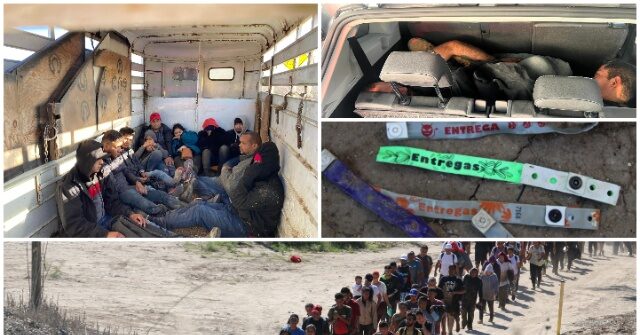In Eagle Pass, Texas, the current dynamics surrounding human smuggling have seen a significant shift, primarily influenced by recent political changes and enforcement policies. Human smugglers in Mexico have increased their fees for crossing migrants into the United States, with costs rising from around $5,000 to a minimum of $10,000, largely due to heightened enforcement measures and the election of Donald Trump as president. This situation has created an environment of uncertainty for migrants from various regions, including Africa, Asia, and Central America, who rely on these smuggling services to reach safety and opportunities in the U.S. As smugglers adapt to the perceived increased risks and challenges at the border, they have capitalized on the smuggling business, leading to substantial increases in fees.
Reports from charity shelters in Sonora, Mexico, provide insights into the experiences of these migrants, many of whom have indicated that the doubling of smuggling fees became noticeable during the summer months of 2023. This increase reflects not only the anticipated tightening of border policies following Trump’s election but also the overall sense of urgency among those seeking asylum. Migrants share concerns about the possibility of the border being shut down entirely, which increases their willingness to pay higher fees to secure passage. This scenario illustrates a troubling trend where desperate individuals are exploited financially as they seek to exercise their right to seek refuge in another country.
Hundreds of thousands of migrants embark on perilous journeys, navigating complex smuggling routes through Mexico en route to the southern U.S. border. Smugglers offer various tiers of services, with rates significantly escalating based on added risks and assistance required, such as vehicle transport across rugged terrain or private properties. Depending on the services rendered, fees can reach up to $20,000. Such figures highlight the precarious situation of migrants, who may exhaust their savings or incur substantial debt in their pursuit of a better life, making them vulnerable to further exploitation. Notably, migrants from regions far from the southwest border, such as China, incur even greater costs, illustrating the worldwide nature of human smuggling operations.
Particularly striking is the situation of Chinese migrants, many of whom are of military age and willing to pay staggering fees of up to $55,000 each to be smuggled from China to the United States. This trend captures an alarming influx, as over 24,000 migrants from the People’s Republic of China were apprehended at the southwest border during the fiscal year 2023. The stark contrasts in smuggling costs for different nationalities also reflect the complexities of the smuggling ecosystem, where migrants from North Africa and the Middle East are categorized as Special Interest Aliens and similarly bear hefty fees for passage.
The role of U.S. Customs and Border Protection has become increasingly critical as these dynamics unfold. The agency faces significant challenges in managing the influx of migrants and addressing the intricate smuggling networks that operate on both sides of the border. Reports highlight how border policies and enforcement strategies not only aim to curb illegal crossings but inadvertently influence the cost structure of human smuggling. For every policy shift, there is a heightened response from smugglers who adjust their pricing and methods to align with the current enforcement climate, leading to a pattern of escalating costs that severely impacts vulnerable populations.
Veteran U.S. Border Patrol agents, like Randy Clark, emphasize the complexities involved in addressing human smuggling amidst a shifting political landscape and evolving border dynamics. The situation presents a multifaceted challenge that involves understanding the motivations of migrants, the tactics employed by smugglers, and the responses of law enforcement agencies. As the interplay between these factors continues to evolve, the experience of migrants seeking safe passage highlights the urgent need for comprehensive immigration reform and the development of more humane policies that protect the rights and dignities of those in search of a better life.

